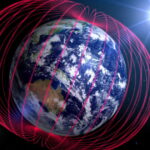Gone are the days when intelligence was solely measured by IQ scores. Intelligence, in its true essence, encompasses a vast array of skills and abilities unique to each individual. Let’s dive into the fascinating world of the 13 most recognized types of intelligence, inviting you to ponder which ones resonate most with your persona. Whether you have a knack for solving logical puzzles, understanding the emotions of others, or navigating through space, there’s a type of intelligence that aligns with your strengths.
1. Logical-Mathematical Intelligence
Among the most celebrated forms of intelligence is logical-mathematical intelligence. It’s characterized by the ability to solve abstract problems, manipulate mathematical concepts, and think logically. Those with a keen analytical mind excel in areas such as mathematics, logic, and science.
2. Verbal-Linguistic Intelligence
Individuals with verbal-linguistic intelligence have a special talent for words and languages. They can effortlessly understand and express themselves, both orally and in writing, often boasting a rich and varied vocabulary. This type of intelligence shines through in writers, poets, journalists, and translators.
3. Spatial Intelligence
Ever met someone with an uncanny sense of direction or the ability to mentally visualize complex objects and environments? They possess what’s known as spatial intelligence, which involves perceiving and manipulating shapes and images, as well as understanding spatial relationships. Architects, designers, cartographers, and navigators typically exhibit high spatial intelligence.
4. Musical Intelligence
Music lovers, musicians, and composers usually have developed musical intelligence. This type encompasses a heightened sensitivity to sounds, rhythms, melodies, and harmonies, alongside the ability to create, perform, and appreciate music. Musical individuals can recognize and replicate musical patterns, play instruments intuitively, and experience deep emotions through music.
5. Bodily-Kinesthetic Intelligence
Athletes, dancers, acrobats, actors, and artisans display bodily-kinesthetic intelligence, marked by the ability to effectively use and control one’s body in space. This includes mastering a wide range of movements and gestures with precision and awareness of body, posture, balance, and coordination.
6. Interpersonal Intelligence
The ability to understand and interact effectively with others defines interpersonal intelligence. It involves empathy, communication, and harmonious collaboration. People with strong interpersonal intelligence can read non-verbal cues, establish trust, and are often seen as empathetic, making them effective teachers, counselors, leaders, and social workers.
7. Intrapersonal Intelligence
In contrast to interpersonal intelligence, intrapersonal intelligence is about self-awareness and managing one’s emotions and motivations. People with this intelligence are introspective, understanding their feelings, intuitions, and values, and use them constructively for personal development.
8. Naturalist Intelligence
Those with naturalist intelligence have an affinity for the natural world. They are sensitive to natural phenomena, plants, animals, and ecosystems, and possess the ability to classify and categorize based on natural criteria. Biologists, ecologists, farmers, and naturalists often exhibit this type of intelligence.
9. Existential Intelligence
Existential intelligence involves pondering philosophical, metaphysical, or spiritual questions. It encompasses the search for meaning, understanding belief systems, and a curiosity about concepts like infinity, consciousness, or transcendence. Philosophers, theologians, mystics, and humanities researchers commonly possess high existential intelligence.
10. Emotional Intelligence
The capacity to identify, understand, and manage one’s own emotions and those of others is known as emotional intelligence. It plays a crucial role in human relationships and stress management, closely linked to both interpersonal and intrapersonal intelligence.
11. Social Intelligence
Social intelligence is the skill to navigate and succeed in complex and diverse social situations. It includes communication, persuasion, conflict resolution, and adapting to cultural norms and expectations. Charismatic and open-minded individuals who easily integrate into various social groups often have strong social intelligence.
12. Creative Intelligence
Creative intelligence is the ability to generate original ideas, solve problems unconventionally, and envision new perspectives. Artists, inventors, entrepreneurs, and visionaries typically possess this type of intelligence, characterized by curiosity, open-mindedness, and a willingness to take risks.
13. Practical Intelligence
Lastly, practical intelligence is the knack for solving everyday problems and adapting to concrete, changing situations. It manifests in skills like planning, organizing, decision-making, and applying theoretical knowledge in real-world contexts. People with practical intelligence excel at solving practical problems, time management, and resource optimization.
Intelligence cannot be summed up by a single number or skill. Each person harbors a unique blend of these 13 types of intelligence, manifesting differently across various contexts and situations. Recognizing and valuing the diversity of intelligences is crucial for personal and professional growth, as well as fostering cooperation and complementarity in our societies. So, which types of intelligence best describe you? Don’t hesitate to explore and develop your talents, and to appreciate the rich tapestry of intelligences around you.






